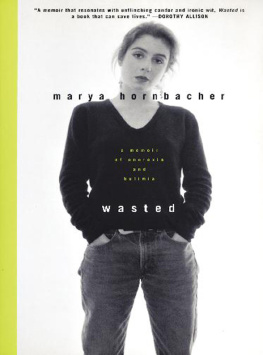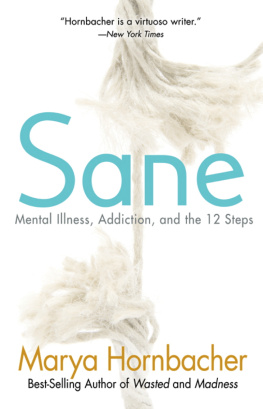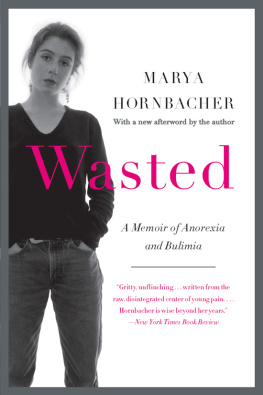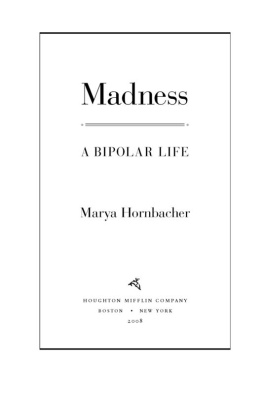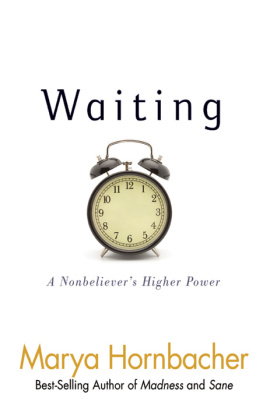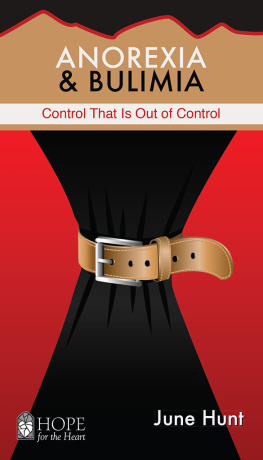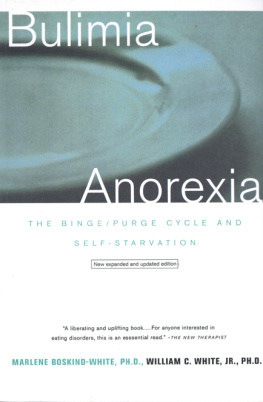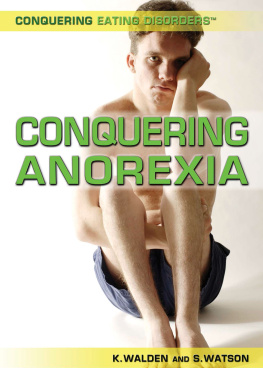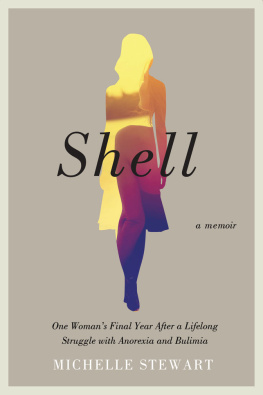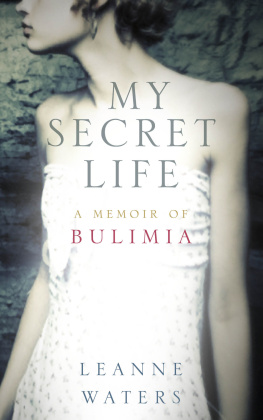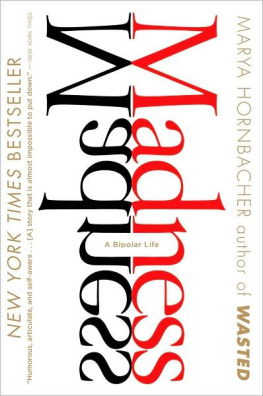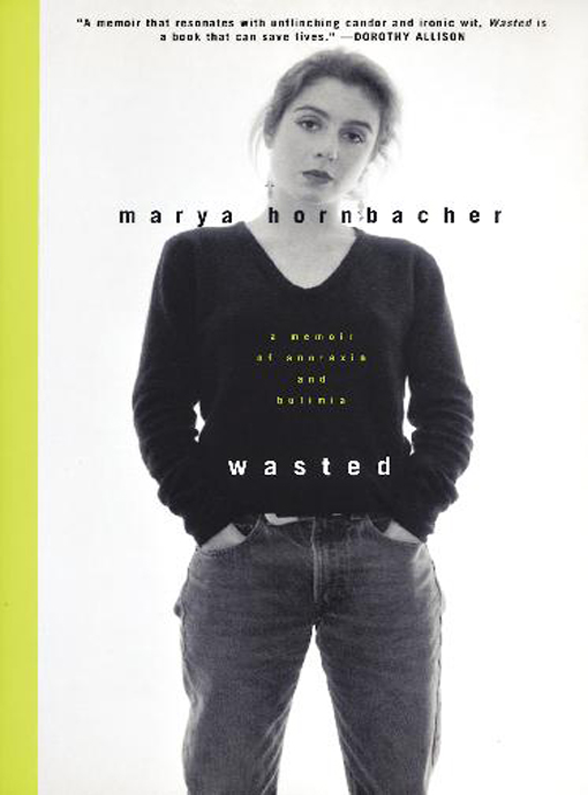Notes on the Netherworld
The awakened and knowing say: body I am entirely, and nothing else; and soul is only a word for something about the body .
Nietzsche, Thus Spoke Zarathustra
It was a landmark event: We were having lunch. We were playing normal. After years in the underworld, we'd risen to the surface and were glancing around surreptitiously, taking tentative breaths of air. Jane, just out of the hospital, pale and shy-eyed, let her hair fall over her face, as though to keep from being seen as she committed this great sin of consumption, this confession of weakness, this admission of having a body, with all its impertinent demands. I was kicked back in my chair, extolling the virtues of health and staying alive, when she glanced up at me and whispered: My heart feels funny.
I sat up and said, What do you mean? Like, your physical heart? She nodded and said, It's skipping and stopping.
I took her pulse, then grabbed my keys with one hand and her with the other and hustled her to my car, head spinning with memory and statistics as we careened toward the emergency room: The first months of health are the most dangerous, the body reacting violently to the shock of being fed after years of starvation, the risk of heart attack high, especially just out of the hospital when anorexic behavior is likely to kick back in. Jane has her eyes closed and is breathing hard, she's twenty-one, I can't let her die, I know how this feels: the tightening of the chest, the panic, the what-have-I-done-wait-I-was-kidding. Eating disorders linger so long undetected, eroding the body in silence, and then they strike. The secret is out. You're dying.
In the emergency room, the doctor took her pulse again and ignored mefirst in bemusement, then in irritationas I asked him to please give her an EKG, take her blood pressure sitting and standing, check her electrolytes. He turned to me finally, after poking her here and there, and said, Excuse me, miss, but I'm the doctor. I said yes, butHe waved me away and asked Jane how she felt. She looked at me. Asking an anoretic how she feels is an exercise in futility. I said, Listen, she's got an eating disorder. Please just take the tests. The doctor, impatient, said, What do you mean by eating disorder?
I was floored. All I could see was Jane's heart monitor, ticking out her weak and erratic pulse, as this man stood here, peering down from on high, telling me that he was the doctor, that I, a mere young woman who had spent fourteen years in the hell of eating disorders, should keep quiet.
I did not keep quiet. I started to yell.
In the year that followed, as both she and I gained strength, weight, voice, Jane began to sit straighter in her chair, began to say, softly at first, then louder, those words so many millions of people cannot bear to say aloud: I'm hungry.
I became bulimic at the age of nine, anorexic at the age of fifteen. I couldn't decide between the two and veered back and forth from one to the other until I was twenty, and now, at twenty-three, I am an interesting creature, an Eating Disorder Not Otherwise Specified. My weight has ranged over the past thirteen years from 135 pounds to 52, inching up and then plummeting back down I have gotten well, then sick, then well, then sicker, and so on up to now; I am considered moderately improved, psychologically stabilized, behaviorally disordered, prone to habitual relapse. I have been hospitalized six times, institutionalized once, had endless hours of therapy, been tested and observed and diagnosed and pigeonholed and poked and prodded and fed and weighed for so long that I have begun to feel like a laboratory rat.
The history of my lifeone version of it, anywayis contained in piles of paper and scrolls of microfiche scattered over this city in basement-level records rooms, guarded by suspicious-looking women, who asked me why I wanted to see them, what I needed with the information contained in files labeled with my name and date of birth. I signed forms confirming that I was myself, and therefore had a legal right to view the documentation of me, and forms saying that I was not a lawyer and did not intend in any way to hold Such and Such Hospital responsible for (patient's name) myself (living or dead). I provided identification. I politely disagreed when I was informed, in a few of the hospitals, that I did not exist, because they could not find any files onwhat was your name again?no, no record of anyone by that name. Incomplete, out of order, nonexistent, I licked my finger and paged through my life, some two-thousand-plus pages of illegible notes.
I learned, among other things, that I am chronic, a hopeless case. I sat in my folding chair and perused the picture presented by these charts, a picture of an invalid, a delusional girl destined, if she lived, for a life of paper gowns and hospital beds.
That picture is a bit inaccurate. I am neither delusional nor an invalid. Contrary to the charts that slated me for imminent expiration, I have not, to the best of my knowledge, expired. I no longer perform surgery on the smallest of muffins, splicing it into infinitesimal bits and nibbling at It like a psychotic rabbit. I no longer leap from my chair at the end of the meal and bolt for the bathroom. I live in a house, not a hospital. I am able to live day to day regardless of whether or not, on a given morning, I feel that my butt has magically expanded overnight. This was not always the case. There was a time when I was unable to get out of bed because my body, its muscles eating themselves away, refused to sit up. There was a time when the lies rolled off my tongue with ease, when it was far more important to me to self-destruct than to admit I had a problem, let alone allow anyone to help. The piles of paper that I picked up and lugged to a table in the medical records rooms all over town sometimes weighed more than the annotated Case herself.
This is a different sort of time. I have an eating disorder, no question about it. It and I live in an uncomfortable state of mutual antagonism. That is, to me, a far cry better than once upon a time, when it and I shared a bed, a brain, a body, when my sense of worth was entirely contingent upon my ability to starve. A strange equation, and an altogether too-common belief: One's worth is exponentially increased with one's incremental disappearance.
I am not here to spill my guts and tell you about how awful it's been, that my daddy was mean and my mother was mean and some kid called me Fatso in the third grade, because none of the above is true. I am not going to repeat, at length, how eating disorders are about control, because we've all heard it. It's a buzzword, reductive, categorical, a tidy way of herding people into a mental quarantine and saying: There . That's that. Eating disorders are about: yes, control, and history, philosophy, society, personal strangeness, family fuck-ups, autoerotics, myth, mirrors, love and death and S&M, magazines and religion, the individual's blindfolded stumble-walk through an ever-stranger world. The question is really not if eating disorders are neurotic and indicate a glitch in the mindeven I would have a hard time justifying, rationally, the practice of starving oneself to death or feasting only to toss back the feastbut rather why ; why this glitch, what flipped this switch, why so many of us? Why so easy a choice, this? Why now? Some toxin in the air? Some freak of nature that has turned women against their own bodies with a virulence unmatched in history, all of a sudden, with no cause? The individual does not exist outside of society. There are reasons why this is happening, and they do not lie in the mind alone.

